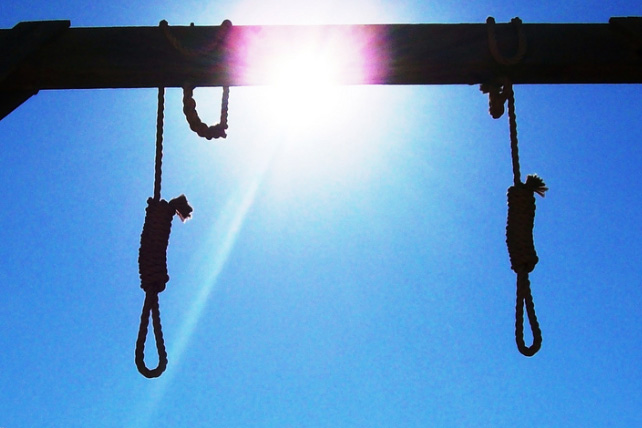People in Bangladesh now face execution for a range of non-violent drug offences.
The Narcotics Control Act 2018, which came into effect on 27 December, mandates either the death penalty or life imprisonment for anyone convicted of committing a range of drug offences. Such crimes include trading or producing over 25 grams of heroin or cocaine, and trading or producing over 200 grams of methamphetamine (colloquially known as "yaba"), Dhaka Tribune reports. Trading or producing less than 200 grams of methamphetamine, or less than 25 grams of cocaine or heroin, will now be punished by between two and 10 years imprisonment.
Under the Code of Criminal Procedure 1898, "when any person is sentenced to death, the sentence shall direct that he be hanged by the neck till he is dead".
According to Harm Reduction International, the last known death sentence for a drug offence in Bangladesh was in 2009. That now looks set to change.
Home Minister Asaduzzaman Khan claims that such strict punishments are necessary to dissuade people from drug use; "This youth society loses their ability to work, service attitude, and creativity, due to drug addiction and they become a burden for the nation in the process". He added that the implementation of the new law meant that "We'll surely succeed in controlling drugs".
The movement towards implementing capital punishment for drug offences in Bangladesh began in 2017, following an apparent rise in methamphetamine use, and increasingly heated political discussions on the subject. As TalkingDrugs reported, the country's Department of Narcotic Control warned that the country "[needed] to do something drastic without any delay to come out from this evil situation. Otherwise, the whole nation may immediately start suffering so much [that it] will go beyond recovery and repair".
In the interim period, between officials voicing their desire for the death penalty and the law coming into effect, authorities seemingly began their own illegal and deadly drug war – bearing similarities to the ongoing slaughter under President Duterte in the Philippines. Hundreds of people have been killed by law enforcement in 2018 for alleged involvement with the drug trade. Authorities have claimed that all those killed were shot to death in exchanges of gunfire, but human rights groups and some witnesses claim people are being executed – some for political reasons or personal vendettas entirely unrelated to drugs.
Khan has warned that “this war will continue until we bring [drugs] under complete control”. He denounced those killed as “not good people”, and said there was “no question” that they all sold illegal drugs.
The lack of evidence and oversight in these killings suggests that the state may continue to execute people under the new drug law without sufficient proof of guilt.
Executing people for drug offences is a violation of international law. Article 6.2 of the International Covenant on Civil and Political Rights reads: "In countries which have not abolished the death penalty, sentence of death may be imposed only for the most serious crimes". In 2017, the Office of the United Nations High Commissioner for Human Rights recognised that “'the most serious crimes' … has been interpreted to mean only crimes involving intentional killing”.
Including Bangladesh, there are 33 countries – including Saudi Arabia, Sudan, and the US – which retain the death penalty for drug offences.


